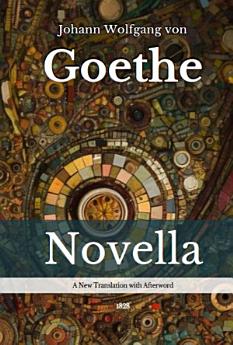Novella
About this ebook
The story centers on a boy named Felix and his father, who arrive at a country estate where a lion, escaped from a traveling menagerie, roams the area. As the estate’s inhabitants respond to the threat, the tale weaves together recollections, rehearsals for a theatrical performance, and a confrontation between the wild and the civilized. A young woman’s uncanny rapport with animals becomes central to the resolution, as she tames the lion not through violence but through poise and presence. Goethe stages this act as both a literal event and a symbolic gesture, contrasting brute force with aesthetic control and pointing toward the human capacity to mediate instinct through art. Novella stands as a late meditation on balance—between danger and beauty, instinct and reason, spectacle and restraint—and serves as a quiet summation of Goethe’s late style: spare, controlled, and rich in allegorical tension.
This critical reader's edition offers a modern translation of the original Fraktur manuscript (the old German script) to help curious readers delve into Goethe's works. It uses clear, contemporary language and straightforward sentences to illuminate his complex ideas. The edition includes supplementary material that provides autobiographical, historical, and linguistic context for this eighteenth-century work. This material includes an afterword by the translator that discusses Goethe’s history, impact, and intellectual legacy, as well as an index of the philosophical concepts he explored, with a focus on Romanticism and Classicism. Also included are a comprehensive chronological list of his published writings and a detailed timeline of his life, highlighting the personal relationships that profoundly influenced his philosophy.










